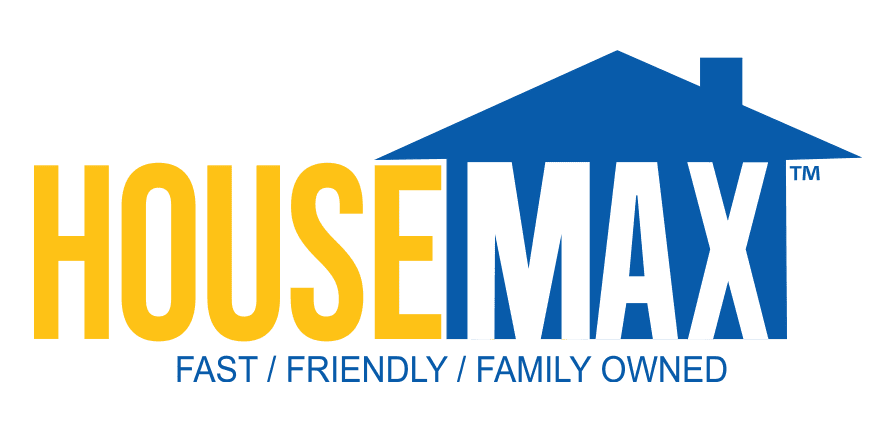Selling a home with an existing mortgage creates stress for many homeowners. They worry about paying off their loan balance while managing the sale process.
Most people don’t understand how to handle both tasks simultaneously, leading to confusion and anxiety. The fear of making costly mistakes keeps homeowners stuck in properties they want to sell.
Mortgage lenders have specific requirements that must be met. Missing any steps could delay the sale or cause financial problems.
Yes, you can definitely sell a house that has a mortgage on it. The process requires paying off your existing loan from the sale proceeds.
Your lender will work with your real estate agent and title company to ensure a smooth transaction. This guide walks you through the exact steps to sell your mortgaged home successfully, from listing to closing.
Key Takeaways
- Yes, you can sell a house with a mortgage; the remaining balance must be paid off at closing.
- A payoff statement from your lender will specify the exact amount needed to clear the mortgage.
- The sale proceeds are used first to pay off the mortgage; any remaining funds go to the seller.
- Selling below your mortgage balance requires lender approval for a short sale.
- Working with a real estate agent or a cash buyer can simplify the process and ensure proper handling of the mortgage payoff.
Can You Sell a House with a Mortgage? A Quick Answer

Yes, you can sell a house with a mortgage. Most homeowners sell their properties while still paying off their mortgages.
The sale process requires you to pay off your remaining mortgage balance. Your lender will provide a payoff amount when you list your home. The funds from your home sale will first go toward clearing your mortgage debt.
If your home sells for more than your mortgage balance, you keep the extra money. However, selling below your mortgage amount requires special arrangements. Your lender must approve a short sale in these situations.
Working with a real estate agent makes the process smoother. They understand mortgage payoff requirements and selling procedures. Your agent will help coordinate with the lender throughout the sale.
Your timing and preparation can affect the success of your sale. You should gather all mortgage documents before listing your property. If problems arise, your lender may offer solutions to complete the sale.
How Mortgage Payoff Works During a Sale
The lender must receive full payment of your mortgage when you sell your home. Your mortgage payoff includes the remaining loan balance, interest, and any fees. The closing agent handles this payment directly to clear the property title.
A payoff statement shows the exact amount needed to clear your mortgage debt. You must request this document from your lender before closing. The statement includes daily interest charges and potential prepayment penalties.
The sale proceeds first go toward paying off your existing mortgage balance. If the sale price exceeds your mortgage debt, you receive the remaining money. The closing agent ensures all paperwork transfers properly between parties.
Short sales occur when home prices fall below the mortgage balance. Lenders must approve these sales before proceeding. You might face additional payments if the sale price doesn’t cover your full loan amount.
The Step-by-Step Process to Sell a House with a Mortgage

To sell with a mortgage, start by contacting your lender for a payoff statement to know exactly what’s needed. Next, determine your home’s current market value to see how much equity you have, then calculate your significant proceeds after paying off the mortgage. Finally, consider your options—like choosing a trusted cash home buyer—to close quickly and smoothly.
Contacting your lender for a payoff statement
A payoff statement shows the total amount you must pay to clear your mortgage. You should contact your lender to request this statement. The document includes interest charges and any additional fees.
Your lender will need your loan account number and personal information to process the request. If you have online banking, you can submit the request through their website. The statement typically arrives within 3-5 business days.
Make sure to check the statement’s expiration date before proceeding with your sale. You should understand all fees and prepayment penalties listed on the document. If anything seems unclear, contact your lender immediately.
The payoff amount might differ from your monthly statement balance. Your lender will include interest up to the expected closing date. They will also explain acceptable payment methods and processing times.
Your real estate agent can help coordinate the payoff timing with your closing date. The title company will handle the actual payment to your lender. Most lenders require wire transfers for final mortgage payoffs.
Determining your home’s current market value
Getting an accurate value of your home involves several practical steps. An appraisal by a licensed professional can provide current market pricing. Home values change frequently, so recent data matters most.
You can research nearby home sales to understand local price trends. Online tools like Zillow offer instant estimates based on area data. Real estate agents can provide comparative market analysis for more accuracy.
If you have a mortgage, knowing your home’s worth helps set the right asking price. The selling price must cover your remaining loan balance. Understanding market value prevents unrealistic expectations during negotiations.
Current market conditions will affect how you price your property. A seller’s market allows for higher asking prices than a buyer’s market. Proper pricing from the start increases your chances of a successful sale.
Calculating potential proceeds after mortgage payoff
Selling your house brings money after paying off the mortgage balance and other costs. You will receive the remaining amount from the sale price. The calculation needs careful attention to all expenses.
The mortgage payoff forms the biggest part of your costs. Real estate agent fees typically range between 5-6% of the sale price. Title fees and closing costs add extra expenses to your total.
You must clear any property liens or unpaid taxes before getting your money. These debts come directly from your proceeds. Legal fees and administrative charges may also apply in some cases.
If the sale price falls below your mortgage balance, you might face a short sale. The bank must approve selling your home for less than owed. You could remain responsible for paying the remaining balance.
Choosing the Right Cash Home Buyers
Cash home buyers offer a faster way to sell your property without traditional real estate complications. These buyers provide immediate payment and handle paperwork directly. Professional buyers can close deals within days instead of months.
A reliable cash buyer should have extensive experience in property transactions. You can verify their track record through online reviews and past client references. Their business reputation will indicate their reliability in closing deals.
Your negotiation approach matters when dealing with cash buyers. Setting a clear minimum price helps protect your interests during discussions. If needed, you can request proof of funds before proceeding with any agreements.
Cash transactions reduce common selling hurdles like mortgage approvals or bank delays. Buyers should present clear documentation for all legal and financial aspects. The process works best when both parties maintain open communication throughout the sale.
| Idea | Benefits |
|---|---|
| Fast closing | Reduces mortgage lien risks |
| Experience | Smooth legal and title transfer |
| Flexibility | Better negotiation advantage |
Need a Faster Solution? House Max Can Help
House Max offers quick home sales when traditional selling takes too long. You can receive a cash offer within 24 hours. The entire process takes just a few days.
We buy houses in any condition without requiring repairs or renovations. Your property can be sold even with major structural issues. If appliances need replacement, we handle those costs.
Our process eliminates typical real estate hurdles and bank delays. You won’t need to wait for mortgage approvals or buyer financing. The closing date can be scheduled according to your timeline.
The selling process remains transparent from start to finish. House Max manages all paperwork and mortgage payoffs. When you sell to us, you receive clear documentation of every step.
If foreclosure threatens your home, we provide immediate assistance. Should you need to relocate quickly, we can close within days. Our team works directly with banks to resolve outstanding loans.

Hi, I’m Jason Jones, founder of House Max here in Kansas City. I’ve been in real estate for many years, starting in mortgages and later moving into investing and creative financing. Since 2012, I’ve been helping homeowners sell their houses quickly—whether they’re downsizing, relocating, or facing unexpected situations. Being born and raised in Kansas City gives me the local expertise to guide every transaction with integrity and care. My goal is always to make selling your house simple, fast, and stress-free.







